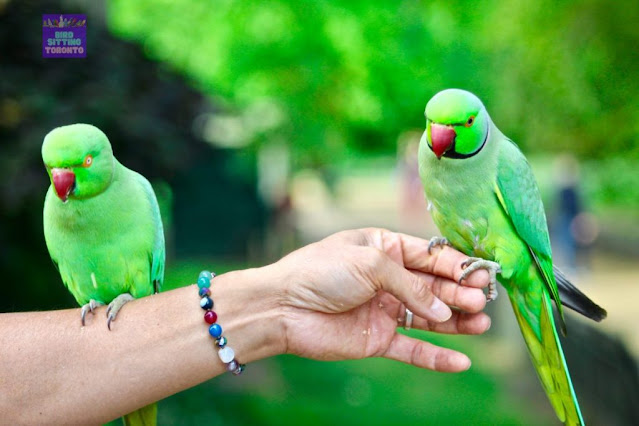Essential Guidelines for Responsible Bird Ownership
Understanding Body Language: Learn to interpret your bird's body language to better understand their moods and needs. For example, fluffed feathers may indicate illness or discomfort, while rapid blinking can signal contentment.
Establishing Routine: Birds thrive on routine, so try to establish consistent daily schedules for feeding, playtime, and sleep. Predictability can help reduce stress and anxiety for your bird.
Positive Reinforcement Training: Use positive reinforcement techniques, such as treats and praise, to train your bird. Reward desired behaviors like stepping up onto your hand or going back into their cage voluntarily.
Introducing New Foods: If your bird is hesitant to try new foods, try offering them alongside their favorite treats or mixing them in with their regular diet gradually. Be patient and persistent, as it may take time for them to accept new foods.
Environmental Enrichment: Rotate and introduce new toys, perches, and accessories regularly to keep your bird's environment stimulating and engaging. Birds enjoy exploring and interacting with novel items.
Providing Safe Out-of-Cage Time: Supervised out-of-cage time is essential for your bird's physical and mental well-being. Ensure the area is bird-proofed, free of hazards, and secure to prevent accidents or escapes.
Socialization: Birds are social creatures and benefit from interaction with their human caregivers as well as other birds if they are compatible. Arrange supervised playdates with other bird owners or consider adopting a companion bird if appropriate.
Monitoring Health: Keep an eye out for changes in your bird's behavior, appetite, droppings, or physical appearance, as these can be indicators of health problems. Regularly weigh your bird to track changes in weight, which can signal health issues.
Avoiding Stress: Minimize stressors in your bird's environment by providing a quiet, calm atmosphere and avoiding sudden loud noises or disruptions. Be mindful of changes in routine or environment that may cause stress.
Seeking Professional Help: If you have any concerns about your bird's health or behavior, don't hesitate to consult with an avian veterinarian or experienced bird behaviorist. Early intervention can often prevent more serious issues from developing.
By incorporating these tips and tricks into your bird care routine, you can cultivate a strong bond with your feathered friend and provide them with a fulfilling and enriched life. Learn more: www.birdsittingtoronto.ca

.jpg)

.jpg)
Comments
Post a Comment